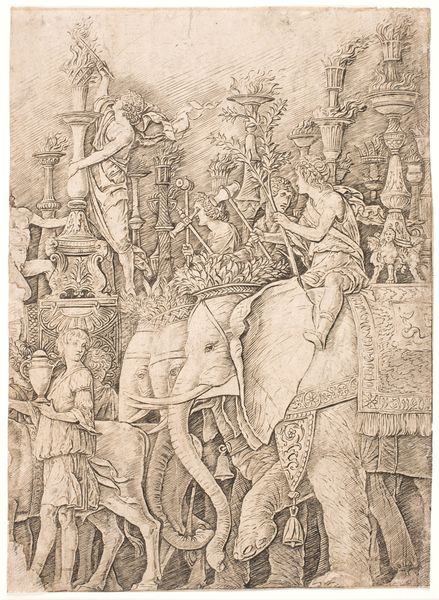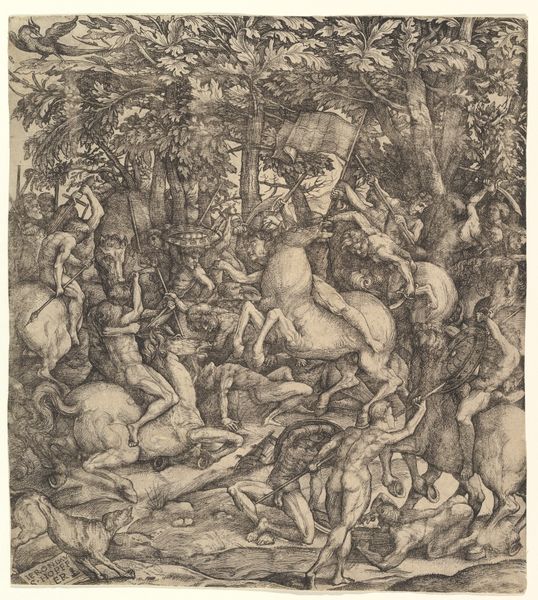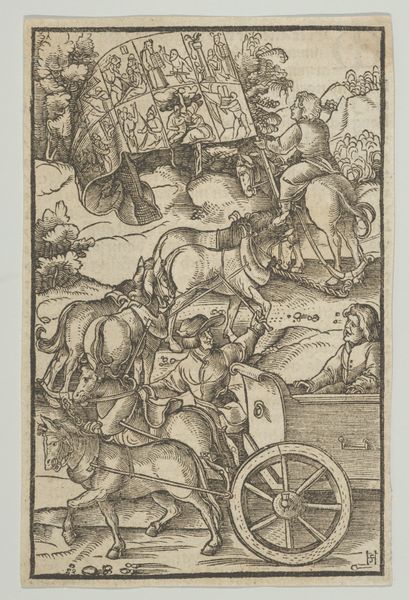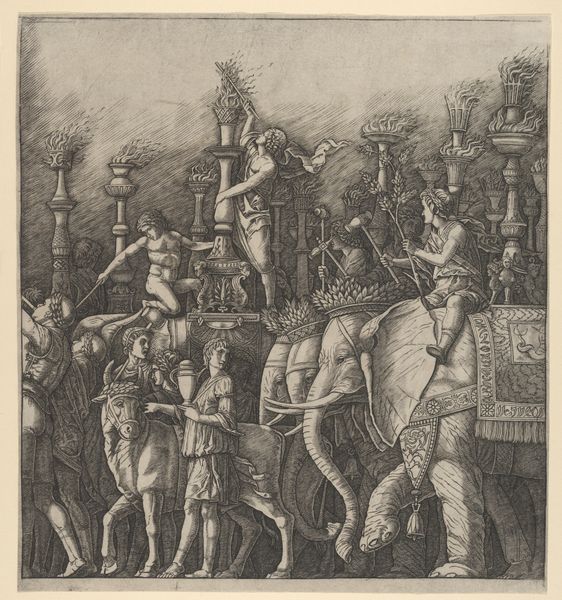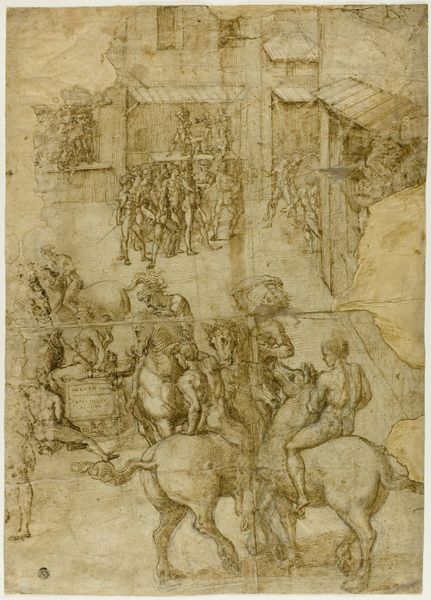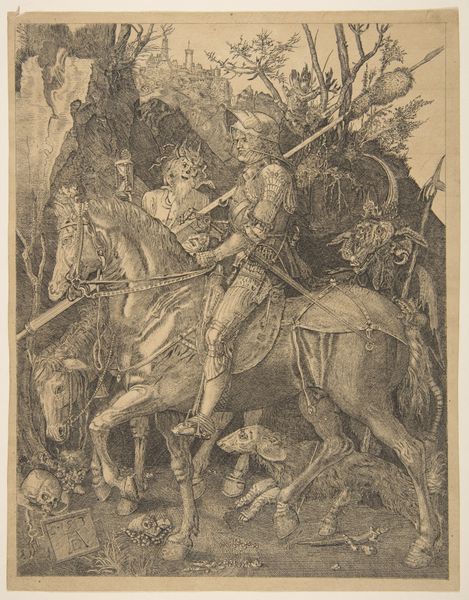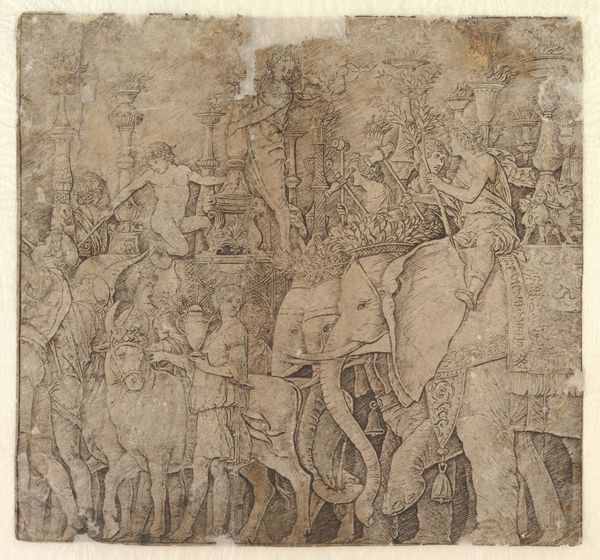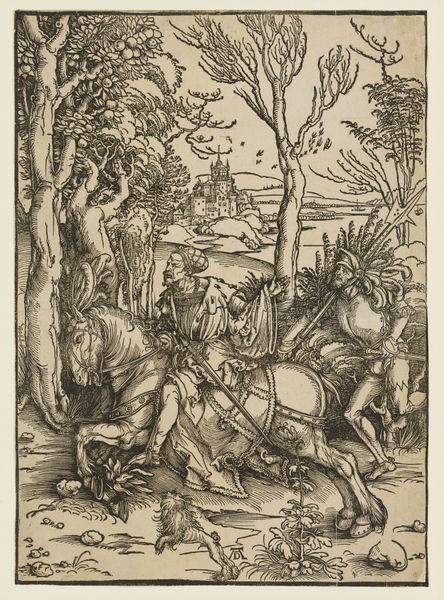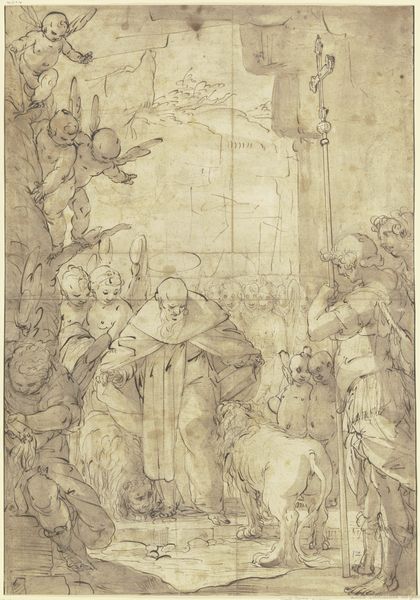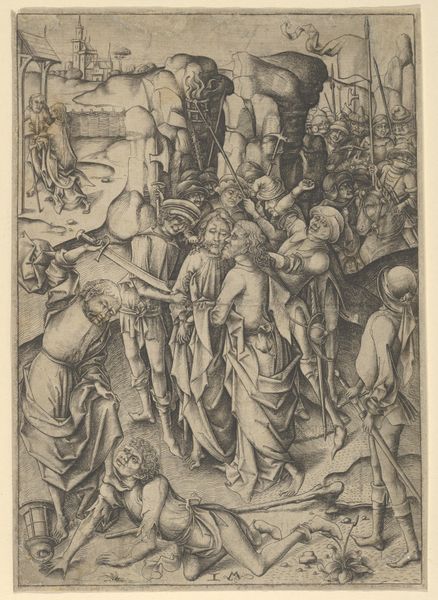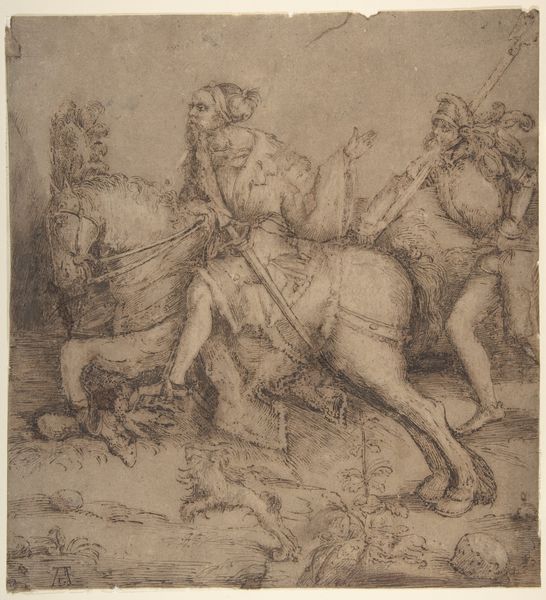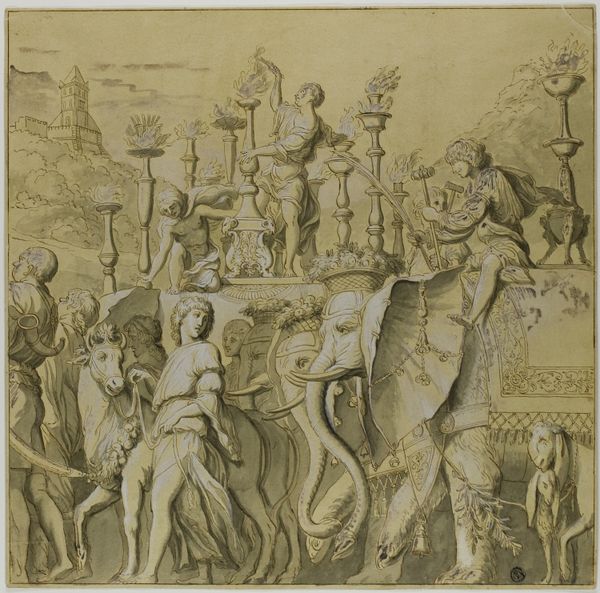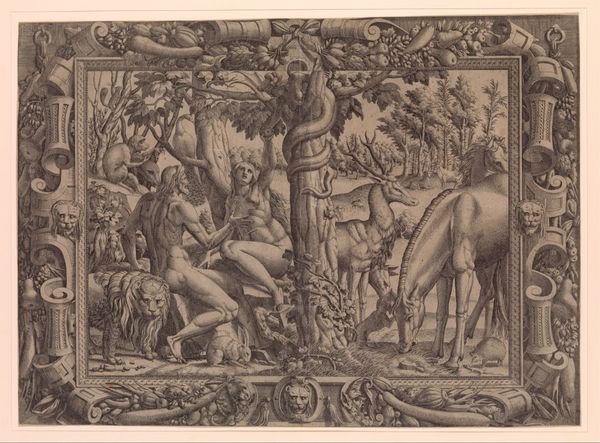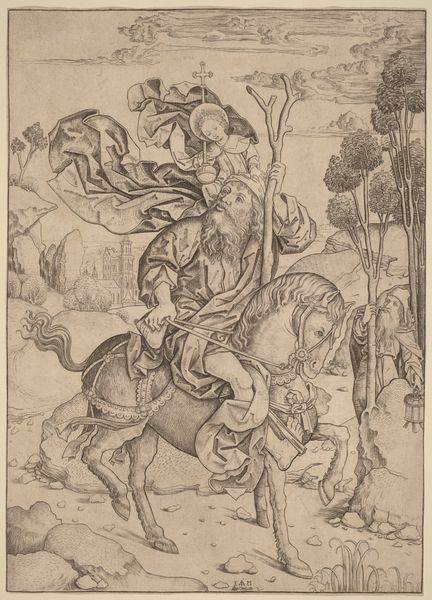
drawing, print, engraving
#
drawing
# print
#
history-painting
#
italian-renaissance
#
engraving
Dimensions: plate: 11 x 9 1/8 in. (28 x 23.1 cm); trimmed on the right
Copyright: Public Domain
This print, "The Triumph of Caesar: The Elephants," was created by Gian Marco Cavalli around 1500 using engraving, a process of incising lines into a metal plate to hold ink. The stark contrast between the black lines and the white paper creates a dramatic scene. To make this print, Cavalli would have used a tool called a burin to carefully carve lines into a copper plate. The depth and spacing of these lines determine the tonal variations we see in the print. Note the incredible detail, from the folds of the garments to the texture of the elephant's skin; these are all a result of Cavalli's skillful manipulation of the burin. Engraving was a demanding technique, requiring both artistic skill and technical mastery. The resulting prints, like this one, were highly valued as both works of art and vehicles for disseminating knowledge and ideas. It’s through the skill of the artist and the laborious process of engraving that this triumphal procession comes to life. The finished work transcends mere image, and becomes a testament to human skill and endeavor.
Comments
No comments
Be the first to comment and join the conversation on the ultimate creative platform.
